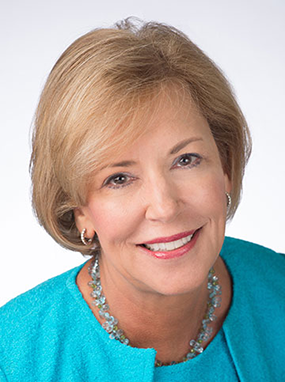From The Director
Raise expectations as well as support for the time we set aside for collaboration
By Stephanie Hirsh
April 2013
In their 2012 Annual Conference keynote address, Michael Fullan and Andy Hargreaves discussed the major tenets of their book, Professional Capital: Transforming Teaching in Every School (2012). The ideas at the heart of their book are the foundation of our commitment to effective collaboration as key to improving schools for students and their teachers.
Hargreaves and Fullan write about the important roles of human and social capital in sustained improvement. Human capital is about the qualities of individuals. In the context of schools, human capital is a teacher’s cumulative abilities, knowledge, and skills developed through formal education and on-the-job experience. Many reform efforts have focused on improving just this aspect of capital. In some situations, accountability becomes the primary driver for improvement, while in others, support and capacity building play that role.
Social capital is an idea Hargreaves and Fullan explore in-depth, informed by the work of Carrie Leana (2011) around this concept. They define it as the capacity of groups to work collectively toward school improvement. Social capital resides in the relationships among teachers. Social capital can raise individual human capital; a good team, school, or system lifts everyone. But higher individual human capital does not necessarily improve the overall team (Hargreaves & Fullan, 2012).
This research and that of others (e.g. Bryk & Schneider, 2002) show that when relationships among teachers in a school are characterized by high trust and frequent interaction — that is, when social capital is strong — student achievement scores improve.
Many schools and school systems understand this at some level. For more than a decade, professional learning communities have proliferated in schools. And in the 2011 MetLife Survey of the American Teacher, teachers report much greater job satisfaction when they have opportunities for regular collaboration (MetLife, 2012).
Yet time to collaborate is not enough. We must be deliberate in our expectations and support for the collaboration time that we set aside for educators. We have all had experiences with high-functioning and high-performing groups as well as groups that began with similarly well-intentioned participants and never achieved their stated goals.
Learning Forward’s role is to support system and school leaders to see building social capital as key to achieving their visions. Our standards stress that schools and school systems must provide the leadership, conditions, and resources — including, but not limited to, time — that facilitate the ongoing development of social capital.
Achieving this vision will take skillful collaboration. So I’d ask you to start with your leaders. Do they have the skills to collaborate? Do you? Do you know how to make the best use of time, how to ensure that you are developing productive relationships, communicating effectively, setting goals and shared visions?
Ensuring education leaders have collaboration skills to facilitate the ongoing development of social capital is essential to ongoing improvements and lasting success.
References
Bryk, A.S. & Schneider, B. (2002). Trust in schools: A core resource for improvement. New York, NY: Russell Sage Foundation.
Hargreaves, A. & Fullan, M. (2012). Professional capital: Transforming teaching in every school. New York, NY: Teachers College Press.
Leana, C.R. (2011, Fall). The missing link in school reform. Stanford Social Innovation Review, 9(4), 34.
MetLife. (2012). The MetLife survey of the American teacher: Teachers, parents, and the economy. New York, NY: Author.

Stephanie Hirsh retired in June 2019 after 31 years with Learning Forward, an international association of more than 13,000 educators committed to increasing student achievement through effective professional learning. Hirsh led the organization as its executive director for the last 13 years where she presented, published, and consulted on Learning Forward’s behalf across North America.
Recent Issues
LEARNING DESIGNS
February 2025
How we learn influences what we learn. This issue shares essential...
BUILDING BRIDGES
December 2024
Students benefit when educators bridge the continuum of professional...
CURRICULUM-BASED PROFESSIONAL LEARNING
October 2024
High-quality curriculum requires skilled educators to put it into...
LEARNING TO PIVOT
August 2024
Sometimes new information and situations call for major change. This issue...









